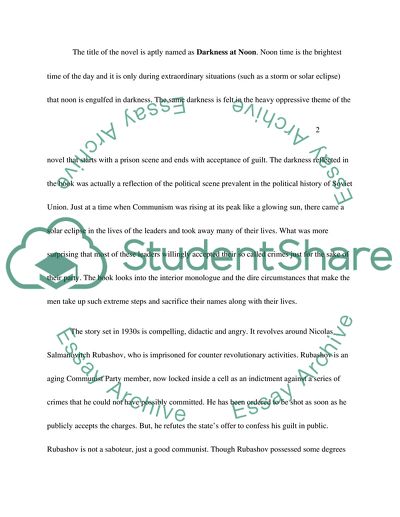Cite this document
(“Analysis of Darkness at Noon by Arthur Koestler Research Paper - 1”, n.d.)
Analysis of Darkness at Noon by Arthur Koestler Research Paper - 1. Retrieved from https://studentshare.org/literature/1750832-darkness-at-noon-by-arthur-koestler
Analysis of Darkness at Noon by Arthur Koestler Research Paper - 1. Retrieved from https://studentshare.org/literature/1750832-darkness-at-noon-by-arthur-koestler
(Analysis of Darkness at Noon by Arthur Koestler Research Paper - 1)
Analysis of Darkness at Noon by Arthur Koestler Research Paper - 1. https://studentshare.org/literature/1750832-darkness-at-noon-by-arthur-koestler.
Analysis of Darkness at Noon by Arthur Koestler Research Paper - 1. https://studentshare.org/literature/1750832-darkness-at-noon-by-arthur-koestler.
“Analysis of Darkness at Noon by Arthur Koestler Research Paper - 1”, n.d. https://studentshare.org/literature/1750832-darkness-at-noon-by-arthur-koestler.


